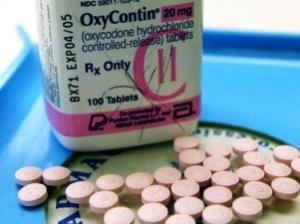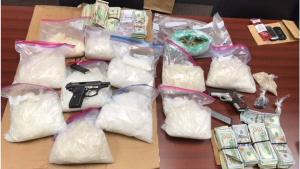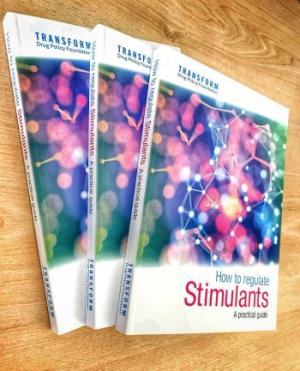It's Friday night and I'm heading for the cocaine shop.
The will of the voters is being challenged in Mississippi, a New Mexico panel recommends higher purchase limits for medical marijuana, and more.
It's all jail and prison guards gone bad this week.
Virginia's governor says he supports marijuana legalization, New Jersey does marijuana and mushrooms decrim in wake of initiative, the White House releases Bolivian coca production estimates, and more.
The New Jersey legislature is trying to pass a marijuana decriminalization bill but isn't there yet, the New Jersey governor and legislative leaders are seeking agreement on legal marijuana taxes, and more.
Mississuppi's higest court agrees to a hear a challenge to the voter-approved medical marijuana initiative, New York City public hospitals say no more drug testing pregnant women without their consent, and more.
Madison WI ends penalties for pot use and possession, Vancouver BC to take up a drug decriminalization ordinance, Mexican marijuana legalization bill heads for a Senate floor vote, and more.
How to Regulate Stimulants: A Practical Guide by Steve Rolles, Harvey Slade, and James Nicholls (2020, Transform Drug Policy Foundation, 304 pp., $20 PB)
Marijuana is now legal, taxed and regulated in 15 states, with most of the Northeast likely to join them next year. The movement for psychedelic liberation is flexing its muscles. Oregon just voted to decriminalize the possession of personal use amounts of all drugs. Brick by brick the wall of drug prohibition is crumbling in the United States.
And now, the good folks at Britain's Transform Drug Policy Foundation are out with a how-to guide for turning that wall into nothing more than a pile of bricks. When it comes to attacking prohibition, marijuana and psychedelics are the low-hanging fruit -- it's easier for members of the public to consider that the harms attributed to their potential abuse or misuse may be far outweighed by the harms of prohibiting them -- but with stimulants such as meth, Ecstasy, and cocaine, the case for prohibition is more popular because the potential harms of their abuse or misuse are much greater.
Still, Steve Rolles and his coauthors make a strong, thoughtful case for dealing with these drugs as we do other non-banned psychoactive substances: Regulating and offering them to consumers with restrictions based on the degree of risk involved. Caffeine is a stimulant, but one with low risk levels for users and society. It is subject only to the regulations of normal commerce -- quality control, informational packaging, and the like.
Coca leaf, coca tea, and oral coca products (lozenges, hard candies, pouches) have a similar risk profile to caffeine -- that is, not much. But both international and US law fail to differentiate between such products with low levels of the cocaine alkaloid and cocaine itself. A regulatory regime based on reason and science would treat coca tea like coffee, not cocaine. But that doesn't mean cocaine would be prohibited.
Indeed, Rolles et al. explicitly differentiate between different forms of stimulants to create a three-tiered regulatory system based not only on science, public health, human rights, but also recognizing the need to prevent corporate takeover and promote social equity. The first tier is the tier of coca tea and coffee.
The second tier, that of medium risk drugs in their typology, produces what they call their "standard model" for dealing with stimulants. Included here are MDMA pills, amphetamine pills (or meth pills -- Desoxyn, anyone?), and cocaine powder. For this tier, they recommend pharmacy-style retail sales at state-owned shops where specially trained druggists dispense not only the dope but also targeted harm reduction information.
And they recommend rationing of these substances, either by purchase amount limits or by means of licensing requirements. The idea is to limit harm by restricting access to these particularly binge-inducing drugs. Rationing is what we do with legal marijuana by restricting purchases, typical to one ounce per day. We don't do that with alcohol, however; you can walk in and buy multiple kegs of beer or cases of hard liquor and no one bats an eye.
Purchase limits -- say one gram of 70% pure powder cocaine per month -- would probably work for most cocaine consumers, who use it recreationally and infrequently. But it wouldn't work for the party host who wants to supply his guests, and more importantly, it wouldn't suffice for the needs of serious drug users, who make up a huge percentage of the sales of any drug.
If the object is to take drug consumers out of the illicit market, rationing is going to have to be flexible enough to address their needs and demands. The authors suggest a tiered system that would allow larger purchases contingent on periodic brief discussions of risks and harm reduction with trained pharmacy vendors.
When it comes to the hardest forms of stimulants, such as injectable meth or cocaine or smokable meth or crack, the model shifts from regulatory retail to harm reduction. The authors advocates measures such as supervised consumption sites and harm reduction kits for crack users. They envision no retail sales of drugs in such forms, but also no criminalization of their users. That might leave users to get their goodies in the black market (or get creative with less harmful forms of the drug, such as converting cocaine powder into crack at home), which could undercut one of the primary rationales for regulation: killing off the illicit market.
But instead of sticks, Rolles et al. offer carrots. Perhaps hardcore tweakers and cokeheads can be induced into using less harmful forms of their drugs of choice, switching from shooting meth to eating oral amphetamines or being offered less-potent powder cocaine formulations with a price incentive. Not discussed is whether users of tier three substances would have some way of obtaining a regulated supply of them through a medical or other non-sales framework.
Regulating stimulant drugs is tricky, with all sorts of different considerations to undertake. But we have a freedom interest, a social justice interest, and a public health interest in moving away from coercive drug prohibition. The Transform Drug Policy Foundation shows us some of the possible paths and is acutely aware of the intricacies of the task. This is very useful stuff. We should all probably send copies of this book to our state and federal elected officials, but not wait for them before starting down the path ourselves.
back to top
The will of the voters is being challenged in Mississippi, a New Mexico panel recommends higher purchase limits for medical marijuana, and more.
MississippiMississippi High Court Takes Up Challenge To Medical Marijuana Measure. Whether voters will actually get the medical marijuana program they approved at the polls earlier this month is now in question after the state Supreme Court announced Tuesday it will take up a challenge to its validity. The challenge was filed by the mayor of the town of Madison days before the election. It argues that the measure is invalid because of a state signature-gathering requirement that is impossible for any initiative to actually comply with. Initiatives are supposed to only get one-fifth of their signatures from each congressional district, but the state now has only four.
New Mexico
New Mexico Panel Recommends Higher Purchase Limits for Medical Marijuana. The state medical cannabis advisory board on Monday recommended allowing medical marijuana patients to buy 15 ounces of marijuana every three months, nearly doubling the current purchase limit. The state health secretary will decide whether to accept or reject the recommendation, although it is unclear when that will happen.
Pennsylvania
Pennsylvania Advisory Board Rejects Insomnia as Qualifying Condition. The state Medical Marijuana Advisory Board has refused to add insomnia as a qualifying condition for medical marijuana use. Board members said they hesitated because insomnia is often caused by an underlying medical issue. The board voted 7-4 against adding insomnia last week.
back to top
It's all jail and prison guards gone bad this week. Let's get to it:
In La Grange, Kentucky,
a state prison guard was arrested Monday after she was caught with a large quantity of drugs at the prison. Guard Ashley Scrogham Sanford, 25, was found with two different drugs and investigators found she had been paid for smuggling them in. She is charged with trafficking in a controlled substance, trafficking in synthetic drugs, possession of a controlled substance, possession of synthetic drugs, promoting contraband, and official misconduct.
In Rome, Georgia, a former prison guard pleaded guilty last Friday to taking bribes to smuggle methamphetamine, marijuana and tobacco into the Floyd County Correctional Facility. Former guard Michael L. Jones, 31, supervised inmates at a recycling center and used that position to collect packages of drugs from inmate family members (usually for $200 a package) and give them to inmates working at the center, who would then smuggle them back into the jail. He was charged with conspiratorial drug trafficking and extortion under the color of official right. He pleaded guilty to both.
In Valdosta, Georgia, a former Valdosta State Prison guard was sentenced last Wednesday to 46 months in federal prison for smuggling meth and cellphones into the prison. Melissa Crawford, 53, went down after somebody snitched her out and her vehicle was subjected to a "random" search as she arrived at work. She first attempted to drive off, nearly hitting another guard, but was stopped and admitted she was carrying drugs. A car search turned up nearly an ounce of meth, some marijuana, and four cellphones. She had previously pleaded guilty to one count of methamphetamine distribution.
back to top
Virginia's governor says he supports marijuana legalization, New Jersey does marijuana and mushrooms decrim in wake of initiative, the White House releases Bolivian coca production estimates, and more.

Marijuana legalization is advancing in Mexico. (Creative Commons)
Michigan Man Imprisoned Since 1994 for Selling Marijuana Seeks Release. The Michigan parole board will take up the case of Michael Thompson on Tuesday. He was convicted in 1994 of selling three pounds of marijuana to a snitch and has been behind bars ever since. Given that marijuana is now legal in the state, Thompson's bid for early release has the support of Michigan Attorney General Dana Nessel and the prosecutor's office that convicted him. He has suffered serious health problems in prison, including testing positive for COVID-19.
New Jersey Legislature Approves Marijuana Decriminalization, Magic Mushrooms, Too. The state Senate and Assembly have approved a measure that decriminalizes the possession of up to six ounces of marijuana, and defelonized the possession of magic mushrooms, too. The move is an interim measure until legalization takes place in January after voters approved it on Election Day. It also includes expungement of past nonviolent marijuana offenses.
Virginia Governor Supports Marijuana Legalization. Following the release of a study that found the state could generate $300 million in marijuana taxes, Gov. Ralph Northam said Monday that he supports marijuana legalization. He plans to work with the General Assembly once it convenes in January, but the process could take up to two years to play out. The state decriminalized possession last year.
Medical Marijuana
Pennsylvania Advisory Board Rejects Insomnia as Qualifying Condition. The state Medical Marijuana Advisory Board has refused to add insomnia as a qualifying condition for medical marijuana use. Board members said they hesitated because insomnia is often caused by an underlying medical issue. The board voted 7-4 against adding insomnia last week.
Drug Testing
New York City to Investigate City Hospitals Over Possible Racial Bias in Drug Testing. The City Commission on Human Rights announced Monday that is investigating allegations of racial bias at three top city hospitals over their policies around the drug testing of pregnant women and newborns. Advocates said that Black and Hispanic families are being reported to state child abuse authorities following a single positive drug test, even though, they said, just a single positive test result does not merit a report. The commission cited studies that show Black women are much more likely to be subjected to maternal drug testing than white women, even though both groups use drugs at similar rates.
Foreign Policy
ONDCP Releases Data on Coca Cultivation and Cocaine Production in Bolivia. Last Friday, the White House Office of National Drug Control Policy (ONDCP) released the United States Government's annual estimates of coca cultivation and cocaine production potential for the Plurinational State of Bolivia. According to these estimates, Bolivia remains the third largest producer of cocaine in the world. Bolivia's coca cultivation totaled 42,180 hectares in 2019, an increase of 28 percent over 2018. Commensurate cocaine production potential increased 20 percent to 301 metric tons. The Yungas region remained the largest coca cultivation area in Bolivia, while the Chapare region represents the second largest. Cultivation exceeded the 22,000 hectares limit established by the Bolivian government by an estimated 20,180 hectares, or 92 percent.
International
Mexican Senate Committees Approve Marijuana Legalization Bill with Floor Vote Planned Soon. Last Friday, three Senate committees gave preliminary approval to a marijuana legalization bill, with a formal vote set for this week. The bill would let people 18 and over possess up to an ounce and grow up to four plants for personal use. Advocates are still hoping for further revisions to promote consumers' rights and social equity in the legal market.
back to top
The New Jersey legislature is trying to pass a marijuana decriminalization bill but isn't there yet, the New Jersey governor and legislative leaders are seeking agreement on legal marijuana taxes, and more.

New Jersey Gov. Phil Murphy (D) is seeking agreement with legislative leaders on pot taxes. (Creative Commons)
New Jersey Senate Approves Marijuana Decriminalization Bill. The Senate has approved a marijuana decriminalization bill, A1897 / S2535. The bill would allow people to possess up to six ounces and to distribute up to one ounce with no criminal penalties. A first offense would be met with a written warning, followed by a fine for any subsequent offenses. The bill would also expunge previous marijuana possession offenses and end the smell of marijuana as probable cause for a law enforcement search. And it includes an amendment that would decrease the penalties for possession of psychedelic mushrooms.
New Jersey Assembly Postpones Vote on Marijuana Decriminalization Bill. An Assembly vote on the marijuana decriminalization bill, A1897 / S2535, didn't happen Monday after some Assembly members balked at a provision in the bill that would have lessened penalties for the possession of psychedelic mushrooms. That provision was added in the Senate, prompting Assembly bill sponsor Jamel Holley (D-Union) to call the move "irresponsible and poor judgment." The bill is now expected to come up for a vote next week.
New Jersey Governor, Senate Leader Reach Agreement on Marijuana Taxes. Gov. Phil Murphy (D) and Senate President Stephen Sweeney (D) have apparently come to an accord on the thorny issue of how to tax legal marijuana, but Assembly Leader Craig Coughlin (D) is not on board yet. Sweeney, who opposed any marijuana tax increases has yielded to the governor, agreeing to let the state's Cannabis Regulatory Commission charge growers a 7% sales tax instead of the 6.625% envisioned in the voter-approved initiative that legalized marijuana. Once Coughlin gets on board, the bill to set up regulations for the legal marijuana industry, A21 / S21, could start moving again.
Medical Marijuana
New Mexico Panel Recommends Higher Purchase Limits for Medical Marijuana. The state medical cannabis advisory board on Monday recommended allowing medical marijuana patients to buy 15 ounces of marijuana every three months, nearly doubling the current purchase limit. The state health secretary will decide whether to accept or reject the recommendation, although it is unclear when that will happen.
back to top
Mississuppi's higest court agrees to a hear a challenge to the voter-approved medical marijuana initiative, New York City public hospitals say no more drug testing pregnant women without their consent, and more.

Purdue Pharma will cop to serious felonies and pay $2 billion in a settlement with the DOJ. (Creative Commons)
Mississippi High Court Takes Up Challenge To Medical Marijuana Measure. Whether voters will actually get the medical marijuana program they approved at the polls earlier this month is now in question after the state Supreme Court announced Tuesday it will take up a challenge to its validity. The challenge was filed by the mayor of the town of Madison days before the election. It argues that the measure is invalid because of a state signature-gathering requirement that is impossible for any initiative to actually comply with. Initiatives are supposed to only get one-fifth of their signatures from each congressional district, but the state now has only four.
Heroin and Prescription Opioids
Federal Judge Approves Purdue Pharma OxyContin Settlement. A federal judge in New York has approved a settlement in a case brought by the Justice Department against Purdue Pharma, the maker of OxyContin. Under the agreement, the company must plead guilty to "multiple serious felonies" in coming days. It will cop to conspiracy to defraud the United States, breaking laws against kickbacks, and one other count. The settlement also includes a $2 billion payout, with the federal government getting $225 million and states getting $1.775 billion to fight opioid addiction.
Drug Testing
New York City Public Hospitals Will Stop Drug Testing of Pregnant Women. Responding to an announcement that the city's Commission on Human Rights is investigating racial bias in the drug testing and reporting to child welfare authorities of pregnant women at three major hospitals, the city's public hospitals have announced they will no longer drug test pregnant women unless they have written consent. This is a change from the previous policy of the City Health and Hospitals Corporation, under which doctors and nurses did not need to inform pregnant patients they were being drug tested.
Foreign Policy
US Abandons Drug Case Against Former Mexican Defense Minister. Federal prosecutors made the surprise announcement Tuesday that they are dropping drug charges against former Mexican Defense Minister Salvador Cienfuegos, who was arrested at LAX after arriving in the US last month. The announcement came in a joint statement with Mexican attorney general's office. "The United States has determined that sensitive and important foreign policy considerations outweigh the government's interest in pursuing the prosecution of the defendant," prosecutors said. Cienfuegos was accused of using his position to shield the H2 cartel and going after its rivals. But his arrest without prior notification of Mexican officials has strained ties between the two countries, with Mexican President Andres Manuel Lopez Obrador threatening to look again at agreements allowing DEA agents to operate in the country.
International
Thailand Loosens Drug Laws to Allow Sale and Possession of Drugs for Research Purposes. The Public Health Ministry has issued new regulations loosening controls on Category II drugs, such as cocaine, opiates and opioids, and ketamine. Under the new rules, such drugs can be sold and possessed for medical and scientific research, medical treatment and disease prevention, or for other government purposes. The new rules go into effect in 240 days.
back to top
Madison WI ends penalties for pot use and possession, Vancouver, BC to take up a drug decriminalization ordinance, Mexican marijuana legalization bill heads for a Senate floor vote, and more.

seized methamphetamine in Georgia (Warner Robbins PD)
North Carolina's Governor Racial Equity Task Force Calls for Marijuana Decriminalization, Study of Legalization. Gov. Roy Cooper's (D) Task Force for Racial Equity in Criminal Justice has recommended that the state study marijuana legalization and enact decriminalization in the meantime. Attorney General Josh Stein (D) who co-chairs the task force, made the case succinctly: "You cannot talk about improving racial equity in our criminal justice system without talking about marijuana," he said.
Madison, Wisconsin, City Council Votes to Remove Penalties for Marijuana Use, Possession. The city's Common Council unanimously approved three marijuana-related ordinances Tuesday that should reduce pot arrests in the state's capital. One allows adults to possess up to an ounce, another allows them to consume it on public or private property, and a third decriminalizes the possession of pot paraphernalia.
Methamphetamine
Senate Approves Meth Bill by Unanimous Consent. The Senate on Monday approved SB 4612, the Methamphetamine Response Act. The bill declares meth "an emerging drug threat" and requires the Office of National Drug Control Policy (ONDCP -- the drug czar's office) to come with a response plan within 90 days. That plan, which must be updated annually, must include an assessment of threat, as well as treatment and prevention programs and law enforcement programs. It must also set the level of funding needed to implement the plan. The House version of the bill, HR 8210, is parked in the House Energy and Commerce Committee, which is where it has been since being introduced.
International
Vancouver Mayor to File Motion to Decriminalize Drug Possession. Vancouver, British Columbia, Mayor Kennedy Stewart announced Wednesday that he will file a motion to decriminalize the possession of illicit drugs in the city. "It's not a criminal issue, it's a health issue," he said, saying the move is "long overdue." If the council passes the measure, the city will ask the federal government to "decriminalize personal possession of illicit substances within the City's boundaries for medical purposes."
Mexico Denies Threatening to Expel DEA Agents After Ex-Defense Minister's Drug Arrest. President Andres Manual Lopez Obrador denied Thursday that Mexico had threatened to expel American DEA agents to retaliate for the arrest of ex-Defense Minister Salvador Cienfuegos upon arrival at LAX last month. At the same time, Foreign Minister Marcelo Ebrard said Mexico had threatened a review of security cooperation because the US did not provide advance notice that Cienfuegos was under investigation, but said there was no specific threat to expel DEA agents.
Mexican Senate Committees Approve Marijuana Legalization Bill. The marijuana legalization bill has been formally approved by the Senate Justice, Health, and Legislative Studies committees and is headed for a full floor vote soon. The bill would legalize the possession of up to an ounce by adults and allow the cultivation of up to four plants for personal use. It would also set up a taxed and regulated marijuana market.
back to top






